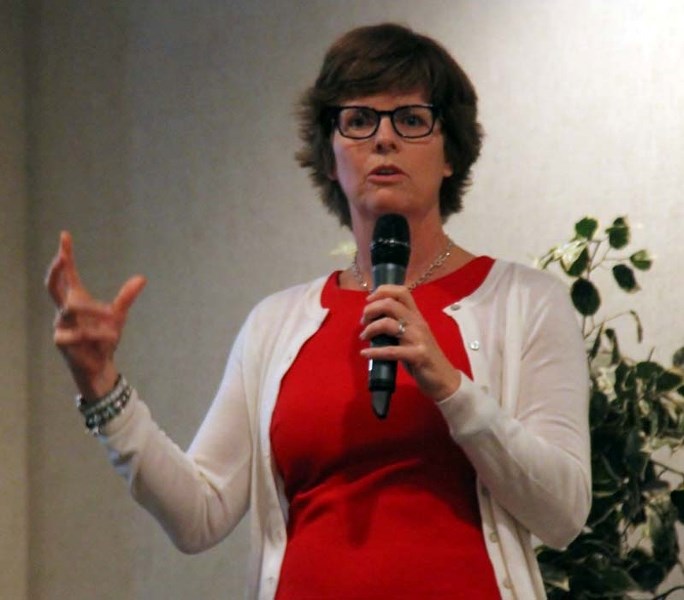To Paul Fujishige, inclusive employment is as much about creating a positive image of people with disabilities as contributing to the betterment of society.
The executive director of Transitions, a local non-profit that works with people with disabilities of all ages, said his clients are a segment of the population that traditionally often remain unemployed.
But seeing the lack of available workers in Alberta, he hopes that more employers will now realize the resource available to them.
“We all need to be engaged in something meaningful and contribute to the betterment of society and work as one,” he said. “That is no different for people with disabilities as it is for everyone else.”
Fujishige attended the third Mayor’s Luncheon last Wednesday.
The event discussed how companies can create and maintain a powerful workplace culture. This included talk of how hiring people with a disability can help with that culture.
“Having co-workers with varying features allows for an environment where staff can feel safe to be themselves, flaws and all,” said Cindy de Bruijn, executive director of the association.
The non-profit, Edmonton-based Gateway Association devotes its time to supporting people with developmental disabilities and their families, and, in collaboration with the city of St. Albert, is the main organizer of the annual luncheon.
As part of the discussion, de Bruijn added that companies can improve relationships with their employees by hiring inclusively.
She shared stories of people who have worked with people with disabilities, many of whom spoke of their co-workers as dedicated and happy people.
Others said that having co-workers with a disability made them feel better connected, but also brought about more appreciation for their own work, she said.
“When your workplace culture is one that embraces diversity, and includes people with disabilities, your business will be better for it,” she said.
“After all, we all agree that an engaged employee performs better, is more committed to his or her job, and becomes a loyal contributor to his or her business.”
Fujishige said most of Transitions’ clients have been able to find work in the city, have now retired, or are in between employment. Many of them benefit from close connections in the community through family and friends.
But there are still barriers that need to be overcome, he said.
These include a willingness among employers to adjust their workplace to accommodate employees who may be using a wheelchair or need larger print on their screen.
There are also employers who initially shy away from hiring people with disabilities because they don’t know how to interact with them, he said.
But that should not worry anyone, he said.
“We hate to label people based on their disability because that doesn’t say anything about the person,” he said. “You can have two people with the same diagnoses that are totally different, and would be totally different employees.”




